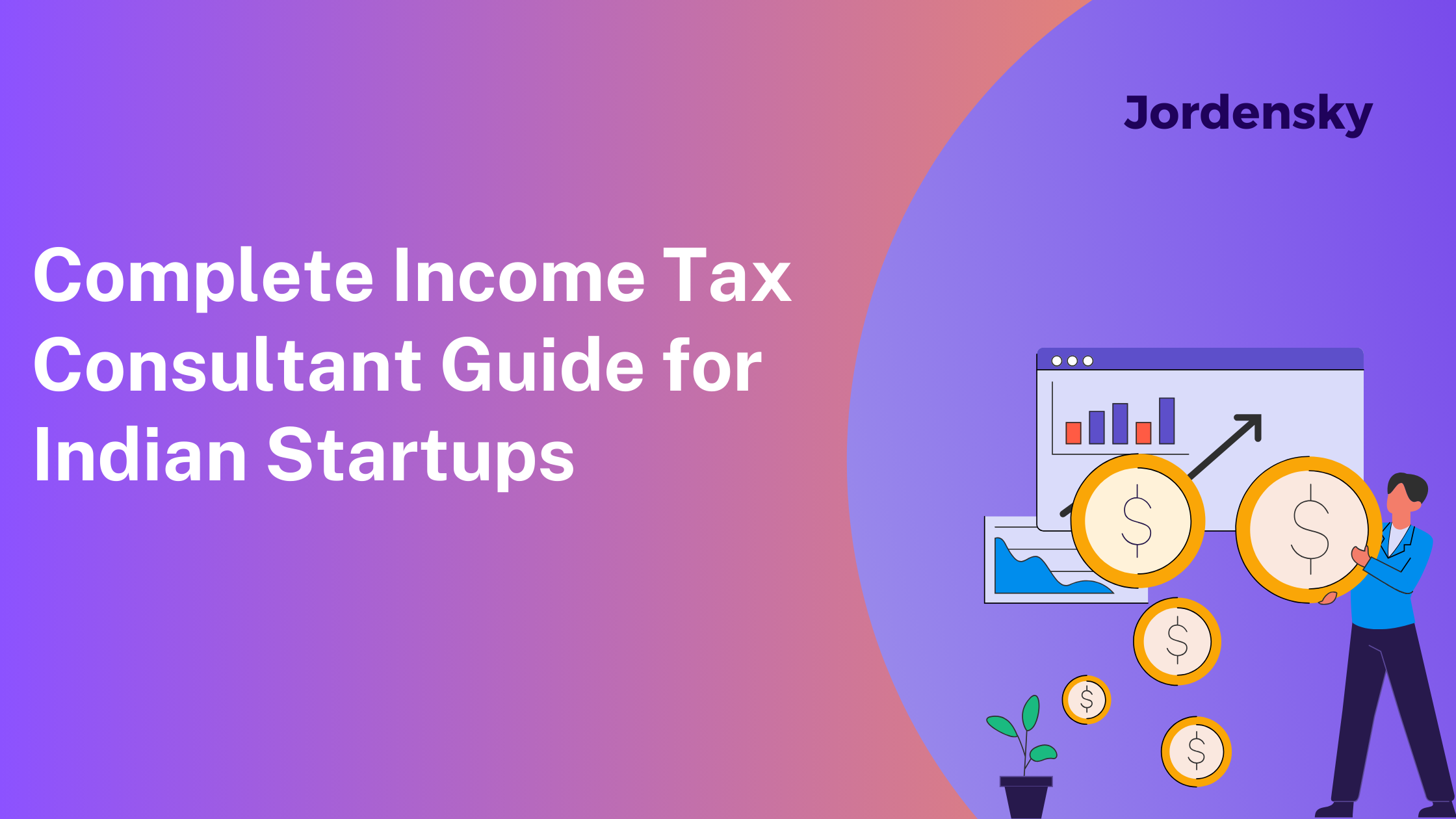Expert ITR filing & tax audit services for Indian startups by qualified CA/CS. Get compliant today!

Launching a startup in India is exciting full of vision, energy, and opportunities. But alongside innovation comes the complex challenge of navigating India’s tax system. For founders, tasks like Income Tax Return filing, assessments, audits, capital gains, and transfer pricing often feel overwhelming, and even small mistakes can lead to penalties or loss of tax benefits.
This is where specialized tax consultancy services for startups become essential. The right consultant ensures compliance, helps save money, maximizes benefits such as Section 80-IAC, and keeps your business investor-ready. Did you know that nearly 67% of Indian startups face tax compliance issues in their first three years? With over 100,000 startups in India as of 2025, smart tax planning is no longer optional—it’s critical. Whether you’re a bootstrapped tech venture in Bangalore or a funded fintech in Mumbai, expert guidance can help your startup avoid costly traps and achieve sustainable growth. And that’s exactly what we do at Jordensky.
Gone are the days when startups could operate in a regulatory gray area. Today's income tax return filing requirements for startups are comprehensive and unforgiving. Let's break down what you need to know:
For Private Limited Companies (the most common startup structure):
The story of Bangalore-based logistics startup LogiFlow illustrates this perfectly. In their second year, they missed their advance tax payment deadline by just three days, resulting in a penalty of ₹2.3 lakhs—money that could have funded their next hire. This is where professional tax consultancy services for startups become invaluable.
Here's where it gets exciting for Indian startups. The government has rolled out several tax benefits specifically designed for startups:
Section 80-IAC Benefits:
Consider the case of Mumbai-based EdTech startup EduVerse. By properly structuring their operations and maintaining compliance, they saved ₹18 lakhs in taxes over three years through Section 80-IAC benefits. However, they needed expert guidance to navigate the eligibility criteria and maintain proper documentation.
Startups in India can choose different legal structures, and each comes with its own tax rate and compliance considerations:
Choosing the right structure is crucial, since it not only impacts your tax outflow but also compliance burden and investor perception.
Tax consultancy for startups is not just about filing returns—it’s about ensuring compliance, reducing risks, and building credibility. Here’s how ITR applicability differs by entity type:
With Budget 2025 extending the ITR filing window to four years, startups now have more flexibility to correct errors or file belated returns. However, timely and accurate filing remains essential—especially to maintain investor trust, secure bank loans, and avoid penalties.
For startups, tax audits aren’t just about statutory compliance—they act as a financial health check, highlighting inefficiencies, cash leakages, and ensuring investor readiness.
A tax audit, under Section 44AB of the Income Tax Act, verifies whether accounts are properly maintained, income is reported correctly, and taxes are paid as per law. It becomes mandatory if:
Capital gains are a common reality for startup founders—whether it’s selling shares of their company, exiting an investment, or liquidating property to fund a new venture. Without proper planning, a large portion of these gains can be eroded by taxes. Smart capital gains tax planning ensures founders retain more money for reinvestment and growth.
For startups with international operations or transactions, transfer pricing compliance is non-negotiable. This includes SaaS companies serving global clients, manufacturing startups with overseas suppliers, or any startup with related party transactions exceeding ₹1 crore annually.
Transfer Pricing Requirements:
Documentation Deadlines:
Choosing the right entity—LLP vs Pvt Ltd vs OPC—has long-term tax implications. Consultants guide startups on:
Inadequate Record Keeping (affects 78% of startups)
Deadline Mismanagement (causes 45% of penalties)
Expense Classification Errors
Angel Tax Complications
ESOP Mismanagement
Monthly Financial Reviews:
Quarterly Compliance Check-ups:
Annual Tax Optimization:
Q1: What are the eligibility criteria for startup tax exemption under Section 80-IAC?
Ans: The startup must be DPIIT-recognized, incorporated as a Pvt Ltd or LLP after April 2016, and have turnover < ₹25 crore.
Q2: How does Angel Tax under Section 56 apply to startups?
Ans: Premium on shares above fair market value can be taxed as income unless exempted through DPIIT recognition.
Q3: Who must get a tax audit under Indian law?
Ans: Companies with turnover or receipts above prescribed limits must undergo audits per Section 44AB.
Q4: Can capital gains be exempted by investing in startups?
Ans: Yes, under Sections 54EE and 54GB, reinvestments can save tax.
Q5: Why hire a CA, CS, and lawyer team for startup tax advisory?
Ans: It ensures end-to-end compliance, strategic structuring, and legal protection.
Building a startup is tough enough—you shouldn’t have to lose sleep over taxes. From Income Tax Return Filing to capital gains planning and transfer pricing, every financial decision impacts your bottom line and investor trust.
That’s why working with experts matters. At Jordensky, we go beyond compliance. We partner with startups to create tax-efficient strategies, unlock exemptions, and ensure smooth audits so founders can focus on scaling.
Ready to streamline your startup's tax compliance and maximize your savings?
Connect with Jordensky's expert team of Chartered Accountants, Company Secretaries, and Tax Lawyers today. We specialize in startup taxation, offering comprehensive solutions from basic ITR filing to complex transfer pricing compliance.
Schedule your free consultation now and discover how proper tax planning can save your startup lakhs of rupees while ensuring complete compliance with Indian regulations. Your business growth deserves expert financial partnership—let us handle the compliance while you focus on scaling your vision.
Contact Jordensky today: Transform your tax challenges into growth opportunities.